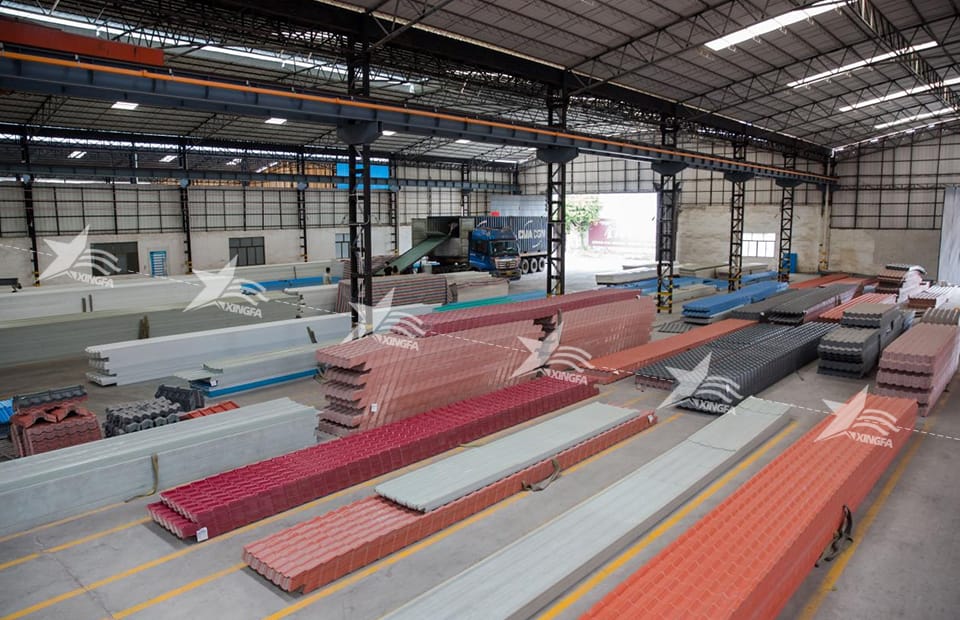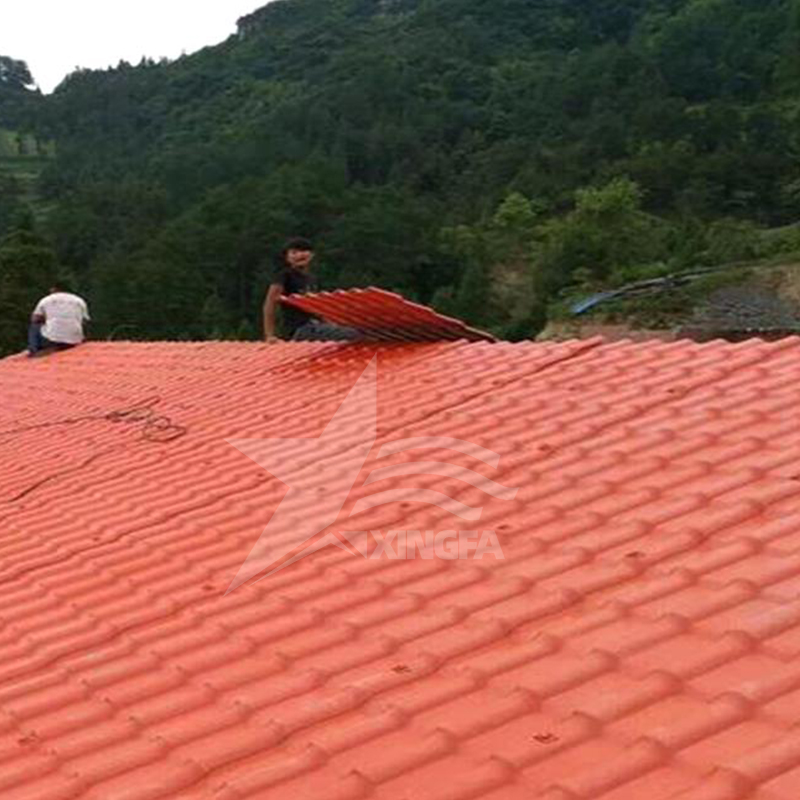With the continuous advancement of modern building material technology, resin tiles, as a new environmentally friendly material, are gradually emerging in the construction field. Their excellent performance and attractive appearance have led more people to choose resin tiles, especially for self-built housing projects. However, understanding the correct use and maintenance of resin tiles is crucial for ensuring their longevity.

Factors Affecting the Lifespan of Resin Tiles
1. Material Quality
One of the most significant factors influencing the lifespan of resin tiles is the quality of the materials used. High-quality resin tiles are made from superior raw materials and produced using advanced manufacturing processes, resulting in better durability and stability. Conversely, inferior resin tiles may suffer from poor production techniques and subpar raw materials, leading to a shorter lifespan.
2. Environmental Conditions
The environment in which resin tiles are used is another critical determinant of their lifespan. Different environments, climatic conditions, and geographical locations can directly impact the longevity of resin tiles. Prolonged exposure to harsh sunlight, heavy rainfall, strong winds, and acid rain can all contribute to the premature deterioration of resin tiles. Therefore, it is essential to consider the environmental conditions when selecting resin tiles.
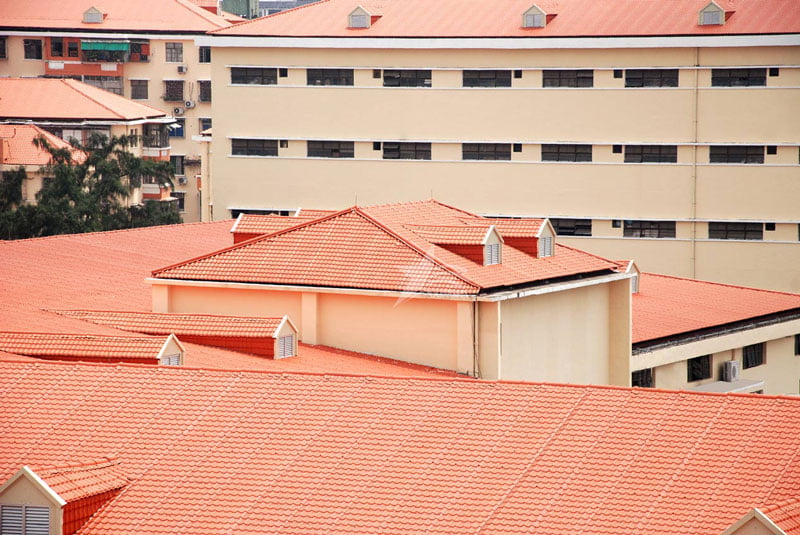
Importance of Proper Use and Maintenance
To maximize the lifespan of resin tiles, proper use and maintenance are vital. Here are some recommendations to help you make the most of your resin tiles:
1. Follow Installation Guidelines
Ensure that you adhere to the installation guidelines provided by the manufacturer when installing resin tiles. Correct installation methods ensure that the tiles are securely and stably fixed, preventing issues such as improper or incomplete installation.
2. Regular Inspection and Maintenance
Conduct regular inspections to assess the condition of the resin tiles. Early detection and repair of any potential damage can prevent issues from escalating, thereby extending the lifespan of the tiles.
3. Gentle Cleaning
When cleaning resin tiles, use a soft-bristled brush and a neutral detergent. Avoid using hard brushes or strong acidic and alkaline cleaners, as these can damage the surface of the tiles.
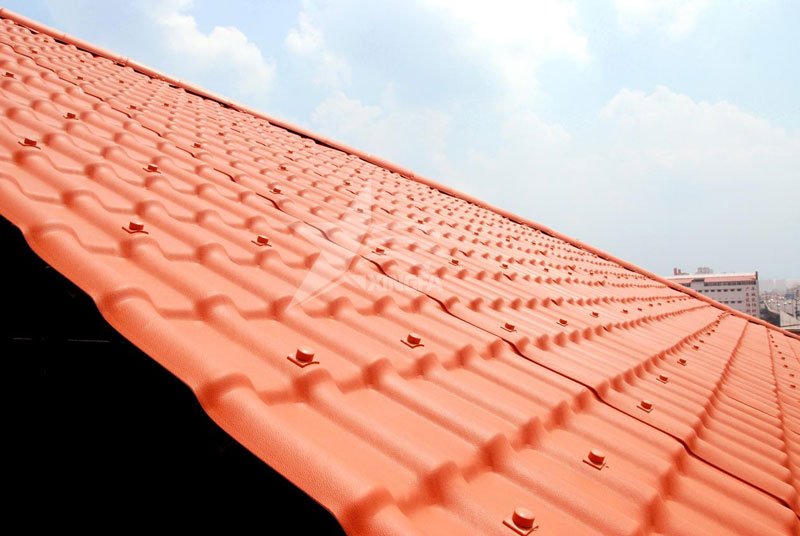
Understanding the Lifespan of Resin Tiles
The lifespan of resin tiles typically ranges from 20 to 30 years, depending on the interplay of various factors. By selecting high-quality resin tiles, ensuring proper installation, and performing regular maintenance, you can significantly extend the lifespan of the tiles, providing stable protection and an attractive appearance for your building.
In-Depth Examination of Material Quality
1. Raw Materials
The foundation of high-quality resin tiles lies in the selection of premium raw materials. These materials must possess superior resistance to environmental stressors such as UV radiation, moisture, and temperature fluctuations. Commonly used materials include ASA (Acrylonitrile Styrene Acrylate) and PMMA (Polymethyl Methacrylate), known for their excellent durability and weather resistance.
2. Manufacturing Processes
Advanced manufacturing processes, such as co-extrusion and multi-layer lamination, enhance the physical properties of resin tiles. These techniques ensure uniformity in thickness and composition, reducing the likelihood of defects that could compromise the tiles’ longevity.
3. Quality Control
Strict quality control measures during production are essential. This includes rigorous testing for tensile strength, impact resistance, and thermal stability, ensuring that each batch of resin tiles meets the highest standards.

Detailed Environmental Impact
1. UV Exposure
Extended exposure to ultraviolet radiation can degrade the polymer structure of resin tiles, leading to discoloration, brittleness, and reduced mechanical strength. The incorporation of UV stabilizers in the manufacturing process can mitigate these effects.
2. Temperature Extremes
Both high and low temperatures can affect resin tiles. High temperatures can cause thermal expansion, while low temperatures can lead to contraction and potential cracking. Selecting materials with appropriate thermal coefficients and adding thermal stabilizers can enhance resistance to temperature variations.
3. Moisture and Humidity
Prolonged exposure to moisture and humidity can result in water absorption and swelling. Ensuring that resin tiles have low water absorption rates and incorporating hydrophobic additives can improve their performance in humid environments.

Comprehensive Maintenance Strategies
1. Seasonal Inspections
Conducting inspections at the change of seasons allows for the timely identification and rectification of weather-induced damage. This proactive approach can prevent minor issues from escalating into significant problems.
2. Cleaning Protocols
Establishing a regular cleaning schedule using appropriate methods and materials can prevent the buildup of dirt and organic matter, which can degrade the surface of resin tiles. Gentle pressure washing can be effective, provided it is done with care to avoid damaging the tiles.
3. Repair Techniques
When damage is detected, prompt repair is crucial. This may involve replacing individual damaged tiles or using repair compounds specifically designed for resin materials. Ensuring compatibility between the repair materials and the original tiles is essential for maintaining integrity.
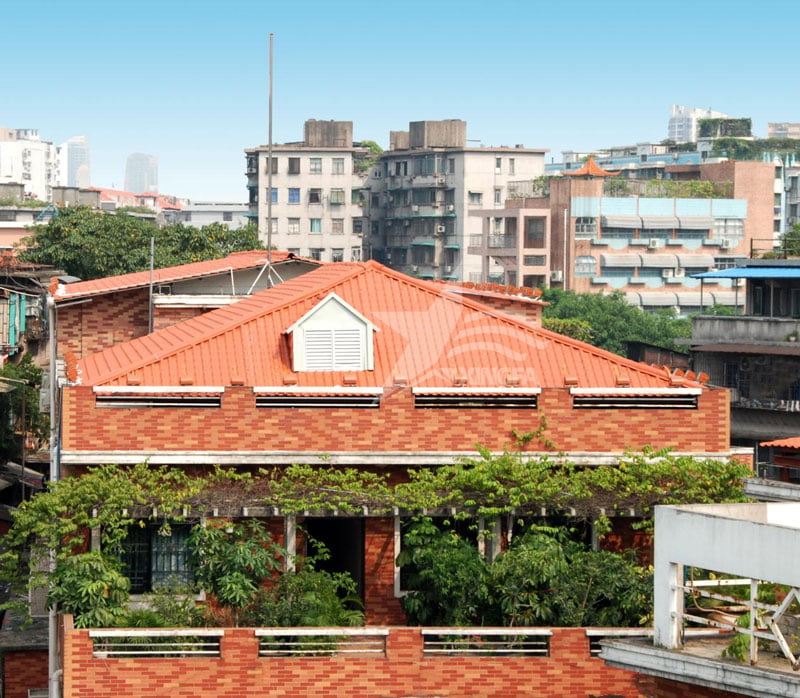
Enhancing Lifespan through Innovation
1. Material Innovations
Research and development in polymer science continue to yield new materials with enhanced properties. Incorporating nanotechnology, such as nano-fillers, can improve the mechanical strength, UV resistance, and overall durability of resin tiles.
2. Coatings and Treatments
Applying protective coatings and treatments can significantly extend the lifespan of resin tiles. These coatings can provide additional resistance to UV radiation, moisture, and physical abrasion, further protecting the underlying material.
3. Design Considerations
Innovative design features, such as interlocking systems and improved fastening mechanisms, can enhance the stability and durability of resin tiles. These designs reduce the risk of displacement and damage under extreme weather conditions.
Case Studies and Real-World Applications
1. Residential Projects
In residential applications, homeowners have reported high satisfaction with resin tiles due to their aesthetic appeal and low maintenance requirements. Case studies highlight instances where resin tiles have remained in excellent condition for over two decades, demonstrating their long-term reliability.
2. Commercial and Industrial Use
Commercial and industrial buildings benefit from the durability and resilience of resin tiles. These structures often face harsher environmental conditions, and resin tiles have proven to withstand these challenges, providing consistent performance and reducing maintenance costs.
3. Climate-Specific Adaptations
In regions with extreme climates, such as high UV exposure or frequent temperature fluctuations, customized resin tile solutions have been developed. These adaptations include enhanced UV protection and thermal stability, ensuring that the tiles maintain their performance and appearance over time.
Future Trends in Resin Tile Technology
1. Sustainability and Eco-Friendly Materials
The trend towards sustainability is driving the development of eco-friendly resin tiles. Incorporating recycled materials and designing for recyclability at the end of the product’s life cycle are becoming increasingly important.
2. Smart Materials
The integration of smart materials that respond to environmental changes is an emerging trend. For example, resin tiles that can change color in response to temperature variations or incorporate photovoltaic cells for energy generation are on the horizon.
3. Enhanced Performance Metrics
Ongoing research aims to push the boundaries of performance for resin tiles. This includes improving impact resistance, reducing weight without compromising strength, and developing self-healing materials that can repair minor damages autonomously.
Заключение
The lifespan of resin tiles is influenced by a complex interplay of material quality, environmental conditions, and maintenance practices. By understanding these factors and implementing strategies for proper use and maintenance, the durability and aesthetic appeal of resin tiles can be maximized. Advances in material science and innovative design solutions continue to enhance the performance and sustainability of resin tiles, making them a preferred choice for modern construction projects.
Selecting high-quality resin tiles, adhering to recommended installation practices, conducting regular inspections, and embracing new technologies will ensure that your resin tiles provide long-lasting protection and beauty for your building. Through these efforts, resin tiles can achieve their full potential, offering a reliable and sustainable solution for roofing and other applications in the construction industry.

